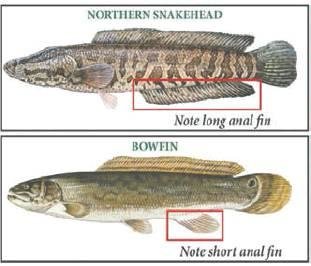Don’t release this fish
If you catch a Northern snakehead fish in South Carolina, kill it immediately.
Do not release it back into the water.
The SC Department of Natural Resources officials has issued this …
This item is available in full to subscribers.
Subscribe to continue reading. Already a subscriber? Sign in
Get 50% of all subscriptions for a limited time. Subscribe today.
Please log in to continueNeed an account?
|
Don’t release this fish
If you catch a Northern snakehead fish in South Carolina, kill it immediately.
Do not release it back into the water.
The SC Department of Natural Resources officials has issued this warning for the invasive fish, which was recently reported in Gwinnett County, Georgia.
This is the first time the Northern snakehead has been confirmed in Georgia waters. It also has been found in North Carolina and Florida.
“Our 1st line of defense in the fight against aquatic invasive species, such as the Northern snakehead, is our anglers,” said Ross Self, chief of freshwater fisheries with the South Carolina Department of Natural Resources (SCDNR). “If South Carolina anglers catch a Northern snakehead, they should kill it immediately and report it to SCDNR.”
Snakeheads, a native of Asia, have been reported in 14 states in the United States. The snakehead is a long, thin fish, similar in appearance to the native bowfin. They can get up to 3 feet in length. They have a long dorsal fin that runs along their whole back, and have a dark brown blotchy appearance. They can breathe air, and can survive in low oxygenated systems. The snakehead is a top-level predator fish, and its introduction poses a substantial threat to native fish populations.
If you believe you have caught a Northern snakehead, do not release it. Kill it immediately (remember, it can survive on land) and freeze it. If possible, take pictures of the fish, including closeups of its mouth, fins and tail. Note where it was caught (waterbody, landmarks or GPS coordinates). Report it to the SCDNR by calling 1-800-922-5431.
Other items that may interest you







Comments
No comments on this item Please log in to comment by clicking here